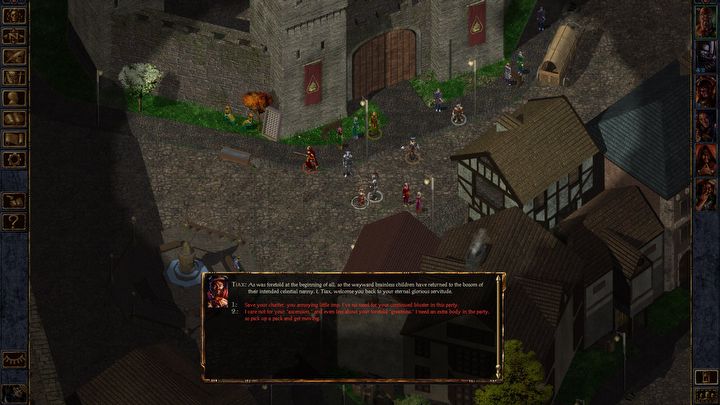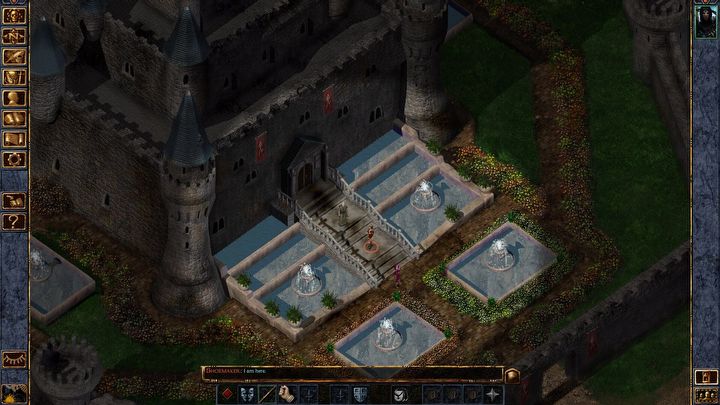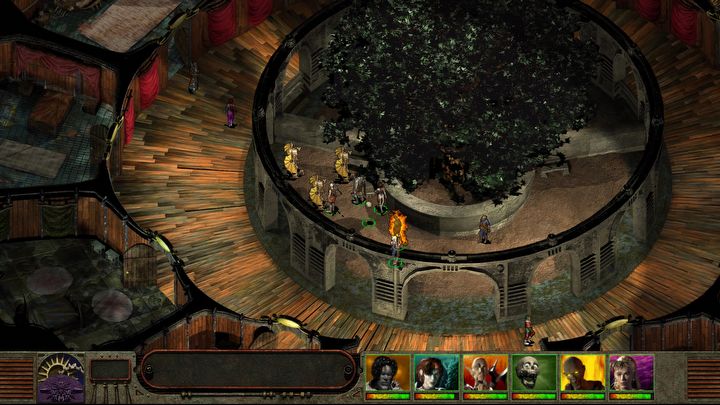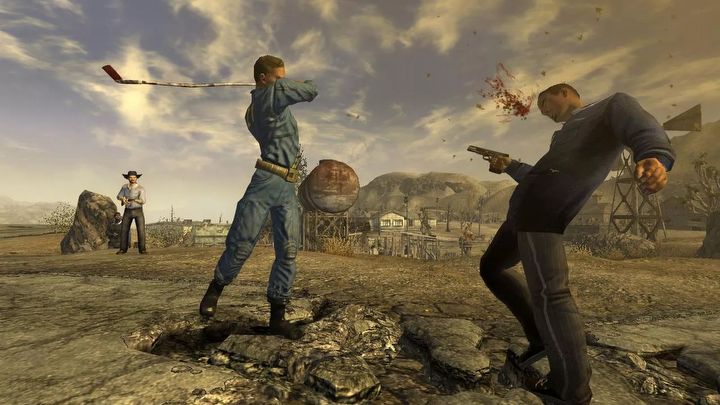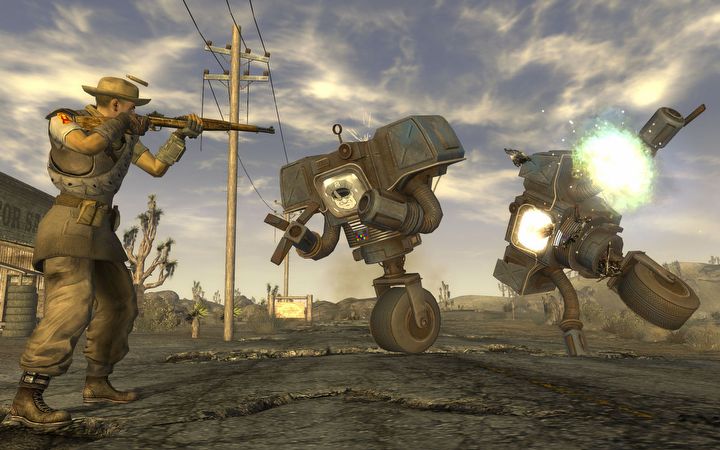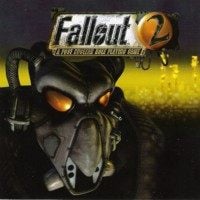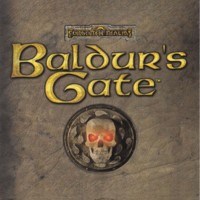"My greatest triumph? Obsidian survived." Interview with Feargus Urquhart
Creator, manager, darling killer. The man responsible for shipping RPGs that shaped the imagination of a whole generation. We talked to Feargus Urquhart about the history of Black Isle and Obsidian – the legacy, the future and what’s important in RPGs.
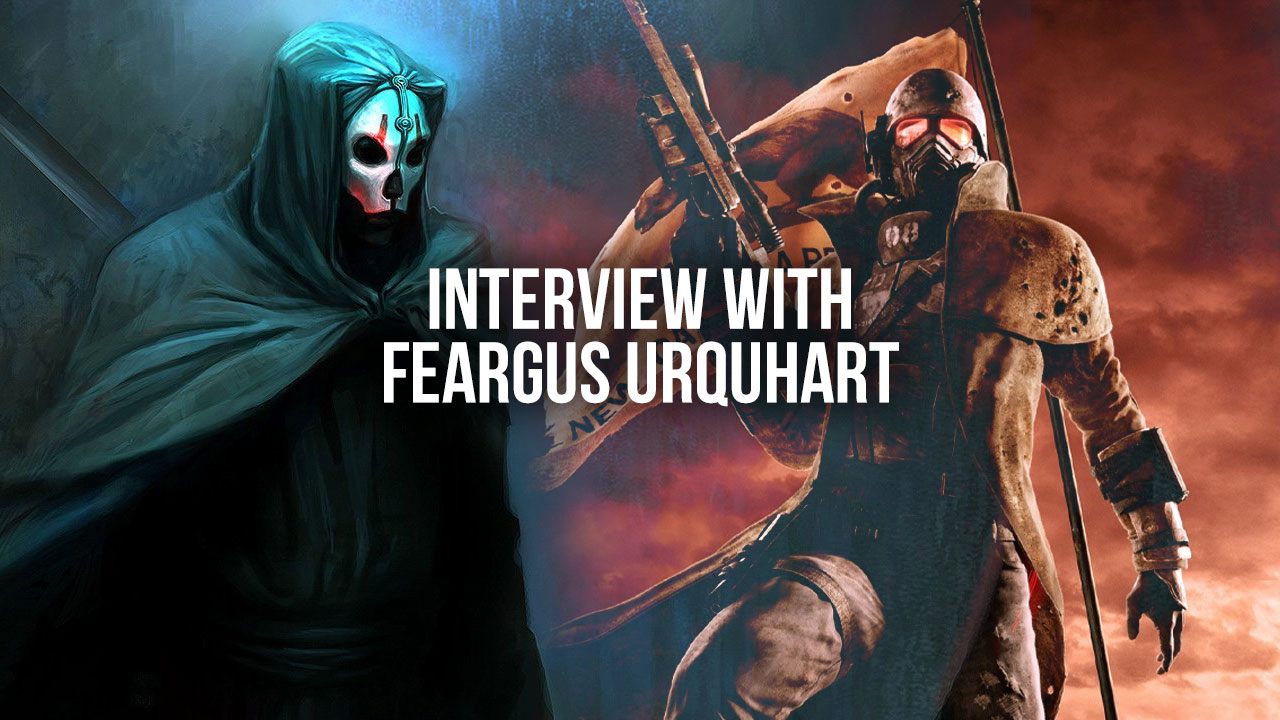
I probably overreacted, but upon hearing what Feargus Urquhart said, I imagined the end of an era. He once said that he’d do another Fallout, before he’d ride off into the sunset. It sounded bold, promising and sad at the same time. It reminded us that someday even such a titan would retire. But, boy, what a legacy would he have left.
The man worked, managed or helped to deliver legendary titles that basically shaped the RPG corner of western gaming industry. Baldur’s Gate, Planescape: Torment, Fallout, Fallout 2. Not enough? Here we go for more. Knights of the Old Republic 2, The Outer Worlds, Pillars of Eternity, South Park: The Stick of Truth, Fallout: New Vegas. The list can go on, after all he’s the president of the Obsidian Entertainment. Before that, he helped Black Isle in forging the forementioned legends of the genre. He was the veteran of Interplay in its heydays.
In 1999 he won the Unsung Hero of the Year award (courtesy of IGN’s RPG Vault), because he “didn’t consider his contributions that important.” It appears that war isn’t the only thing that never changes. The year is 2022, a couple of days before Christmas Eve. We meet through Zoom and the man on the other side of the web (and the planet) is humble, smiling and armed with many things to say. We talked for almost an hour about what bothered him, about his influence on Black Isle and Obsidian’s games. About tough lessons, times and triumphs. I also tried to squeeze anything about that, absolutely hypothetical, new Fallout (seriously hypothetical, Obsidian’s got their hands full right now with developing three games). So, let’s see what came from that conversation.
The Future
Hubert Sosnowski (Gamepressure.com): The initial spark for this interview was your simple quote: “I would always personally say my hope is that before I ride off into the sunset, I'd love to make another Fallout game.” How much does Fallout mean to you? What Fallout as a game, or an idea, is for Feargus Urquhart?
Feargus Urquhart: I need to go back many, many years into the past. When I was ten or eleven, I was introduced to Dungeons & Dragons. I, a kid who was a little bit of a dork – or a lot of a dork [smiles] – it was an impulse to start reading fantasy. Tolkien, the Spellsinger series by Alan Dean Foster, Belgariada by David Eddings. I really enjoyed this whole adventure in another world.
That went into my high school years, I became part of a gaming club, so now it was a larger group thing. Earlier it was three or four of us playing DnD. It created this love of mine for that type of game, storytelling, characters and getting to do what you want. I love board games, they were always in my house. But role-playing games are different, and they give you this ability to be who you are, or who you want to be, in some strange world. Fast forward – I went to college and got my job in the game industry. In 1996 I got the opportunity to work on RPGs. The first of these was just Dungeons & Dragons for Interplay. I was put in charge of that division and Fallout wasn’t originally a part of that. But!
I was friends with Tim Cain and Leonard Boyarski and we kept talking. It’s wrong to say they needed help. They needed… support. To focus on a game, they needed more support from Interplay – resources and things like that. So, Fallout came into the RPG division that became Black Isle Studios. What’s important to me about it is that Fallout was the first game I got to work on that embodied that feeling of DnD, the adventure, the characters, the agency. We used the word “agency” all the time to underline that you can make your own decisions and be who you are in this world. This crazy, wacky world of Fallout makes sense, you get it. It’s not like the real world, but it feels like a world you understand. Saying that you wanna be there is probably wrong [laughter].
HS: Ask the preppers.
FU: [Smiles]. It’s like Disneyland. It’s not real life, but it all makes sense and fits together, and you get to go – and like I said – be who you are, who you want to be in it. That is what resonated and maybe it’s just a little bit of my upbringing – I’m a cold war kid, and from that standpoint, the bombs make a lot of sense. I played a lot of Monopoly with my family, so the whole PIP-boy doing this [Feargus shows thumb up] is from that.
HS: I knew I recognized that guy!
FU: Yeah! And sorry, I said “PIP Boy,” because it’s the original name of the Vault Boy. But in general, all these things tied together what Fallout is for me. My upbringing, playing RPGs together, and the world where you’re out to survive. I think there’s some lizard-like part of our brains that likes that concept. We don’t really die there, let’s be honest, but we’d like to think that we could be this person in this world. With a Vault suit and a pocket knife.
HS: Ok, so Fallout is partially your origin story and partially expression of freedom in role-playing.
FU: Yeah, exactly.
HS: So, you basically started with Fallout, and you would also make it your final hurrah. What would be that final Disneyland, your final Fallout, and expression of freedom?
FU: I hate to get boring answers, but it’s just to get people and put them back into that world. That’s it. I may have a different view of making games than other people. For example, Avatar 2 just came out and James Cameron spent ten or fifteen years making it. Back then, we were talking with them about making an Avatar 2 game… I don’t even know how long ago. Eight, six years, something like that.
With Cameron, there are those masterpieces, and for me a lot of making games is just getting to put people in these worlds and having them have an amazing time. I don’t need every game I made to be Avatar 2, right? You must have this desire to design things awesome, of course. It’s not that you start with this attitude „meh, just put something out meh,” that’s not it at all. But it’s also that idea, that I’ve always seen my career as one of many games. Not one of a single game.
So, if we do another Fallout, I see this as the next chapter of Fallout, not the final chapter. And that’s what is interesting to me, because it’s a little bit of freeing to not have to make something that must be the most amazing game or movie or book. Because then you’d be trapped, if you say that to yourself or to the public. All I want to do with our games – and if we’re going to do another Fallout – is to say, what we’re going to like? What do we think will be better? What would people like? What would they think will be better? What did we learn in the last two, five, ten years? And then – go make that world. Use the PC or the console to make an amazing-looking world. But know that, what’s more important are the stories and the characters and the things that players can do in that world. And that’s Fallout. It’s about giving people that real expression of the world and letting them just go play.
HS: So, you’ve basically just gone into my trap and that’s perfect, because I was going to ask what your next Fallout would be about? Not in terms of specific plotline, but in terms of themes, design principles, maybe being a vehicle for modern divisions in society. I don’t know if you had the same feeling, but when I played New Vegas this year and met Caesar's Legion for the first time, I felt it resembled some groups of, well, people who got lost, both in your country and mine, due to similar problems but coming from different backgrounds. It’s like the same divisions but coming from a different source. When I played Fallout, I felt that wonderful paradox, that you’re in another world, but then you have feedback for the real one. I also had that feeling of ruthless social commentary with The Outer Worlds. So, are there any problems that bothers you and your crew – problems that could be put into the next Fallout game? Ideas that you want to show? Hopes or warnings for the future?
FU: [Laugh] So it’s always good for me to start off with answering a question like that by saying very distinctly: we’re not working on Fallout, and we haven’t even talked about what it would be.
HS: Of course. We’re talking about a purely hypothetical game.
FU: Right, but I can talk about how I personally look at Fallout. One thing I can kind of look back at is – I got a lot of questions about Fallout 3. A lot of journalists were trying to trap me, because they wanted me to say something like “Oh, Fallout 3 is not a real Fallout, because it’s not like Fallout or Fallout 2, it’s not turn-based.” Why I’m bringing this up is because of what Fallout 3 did. Every time we make a Fallout game it’s about that world.
And you’re correct. I believe our Fallouts are some reflections on our world. Or as you said, the Outer Worlds, though it was Tim Cain’s and Leonard Boyarski’s work, but they of course also did Fallout 1 and started Fallout 2. Maybe it’s because of how we make roleplaying games, but of course we have overall themes, storylines. But then, what we do is to turn parts of the game over to groups of people, the pods, strike teams, who are given freedom to go make that part of the game. I think more so maybe than how a lot of other games get made.
It’s a distinct belief of mine that I’m not brilliant. I’m fairly creative, but how you get incredible creativity is by giving people some guidelines and then just letting them go. I think what comes out of that is that people speak to what’s going on with themselves and what’s going on with the world around them.
I guess on part, and an odd answer to your question, is: I don’t know. I don’t know what those themes are purposely because these are the stories that teams, the pods are going to tell themselves about the regions that they’re making. There are some overarching things, you’re absolutely right. When Josh talked about Fallout New Vegas, he came up with these ideas, who are the NCR, who are The Powder Gangers, who are the people in Goodsprings, who’s in Caesar’s Legion, who’s Caesar himself. That’s the throughline. That’s like the colors that many teams take into each of the parts of the game they make, but then they tell their own stories with those characters. So, you get that craziness – not that craziness of Caesar's Legion, they make sense...!
HS: In every specific sense...!
FU: [Laughs]. Exactly, in a very specific sense. As for the second part of the answer. Whether it’s Fallout or another game I get to make, I think of a couple of interesting themes. One is responsibility. I want to go and make an RPG story about personal responsibility. I think that’s an important conversation to be had. About people being responsible.
I also like the ideas that were put into The Outer Worlds but taken to the very crazy end. You know, about corporations and that kind of stuff, but for now I have no idea if that’s something that would happen. But still, it’s the idea of how you’d give more of this sense of responsibility to the player that would be interesting to explore.
HS: Responsibility for what? Personal actions? The world around us?
FU: I think of those two. You have the responsibility. You are responsible for things and your actions matter.
And it can be an interesting time for that RPG to be made. We do the best job, when we really understand what the player is going to do in our game and then we show the reactions to that. Those can be subtle things; they cannot be not subtle things. I mean, we do our best job, when we help the player see what happened or did not happen because of what they did or didn’t do. That’s how you reinforce that feeling of responsibility for your actions.
HS: Is there some specific aspect of this responsibility or something that you’re afraid of? Sorry, you won’t escape that easily! If you were the part or leader of one of those Fallout pods – is there something you would tell by Fallout? Just something you as a person or a gamer would tell by Fallout. One story, one dilemma.
FU: [Laughs.] I know, I know. Sometimes when you’re trying to set up the system in the game, you’re figuring out what the player is trying to do, what would they figure out how to do, and how to get the game to respond to it. That can create something, which can be called personal rules.
I’ll give an example from something I actually put into Fallout 1. It must be the response to the actions of the player. In the Hub in FO1 there’s a store that has lots of really good equipment in there. The way that Fallout 1 works is that you could walk up to the table and just take things that you could otherwise buy. It’s something that Tim really wanted. The tester found out – because we didn’t do a good job at protecting things – they could just wander around level 5 and steal the equipment they should have around level 15. That made the game much easier.
We thought “Ok, this is a problem.” So, I’d figured out: let’s put guards in there. They were really high level, but! We also really wanted to make people feel like there’s a chance to get the stuff away. So, we put the guards in very specific spots, so the players could try. There was a really slim chance that you could still do a couple things and get out without getting killed. We also made it that at some level, you get to the point, when you’re more powerful than the guards. You can then come, kill them and get the stuff if you want to be that kind of character.
Why I’m bringing it about corresponds to the theme of responsibility. I want to set up these rules that the player understands. What comes out of that is: for themselves, players can decide to go and steal all the stuff or not steal all the stuff later. So, they get to be who they want to be that way. But more so, we basically set up that the game reinforces that if they try to do something, it’s going to have a bad effect on them. It’s not like every time a player goes against the rules of society in the game, they get shot.
It’s an example of looking at any of our games broadly and asking: what are all the ways that people are going to act in this game? And then reacting to that. Whatever the theme of personal responsibility could – or maybe not – do, it’s just that the entire game must reinforce that. How NPCs talk to you based on what you did or you didn’t do. Like the stealing, putting the player in jail. Making people feel good about being good or making them feel good about being bad. That’s something that’s really important in games and something that reinforces the personal responsibility – and I have to give 100% credits to Chris Avellone for this. In the early days of Obsidian he kept on pushing this. In the past, when the player was bad, we made it negative, but the idea is that we want to encourage the player to be who they want to. There’s an extent, where you can do that. If we want the player to feel like a bad person or like somebody who gets something through force and we’re allowing that playstyle, then we have to give them positive feedback on playing that way. It was not how we thought, when we were early in our careers.
HS: So, is there a modern problem that you would made part of the game?
FU: Probably the thing that I think about the most is the environment. I do think about what’s happening, I don’t know how you would reflect that in the game, because you don’t wanna punch someone in the face with it. That’s not how things change. I don’t know if that would ever be a theme. If we're going to include something like that, we’d have to figure out how to represent that in a game in a way that was interesting. That’s our job. To give you and everybody else games to have fun.
There are games in the industry that have a specific purpose and I think people understand that and they’re fine with that going in, but the bigger RPGs that we make are about people going in and enjoying themselves. About feeling successful, feeling a sense of escape. Whatever theme we may want to tell, it has to take a backseat to the player’s enjoyment. We can be subtle, we can do it in interesting ways, but we still understand what’s our job. It’s not to show and tell „Look how amazing we are and you just have to love our game, because we made it.” We have an incredible responsibility for the person that goes in, downloads our game for 40-70 dollars. That’s a lot of money for people, so also – a lot of responsibility. We don’t want to preach. If we have some message here, that’s great, but it can be something that the player has to focus on more than the fun and experience of being in that world.
